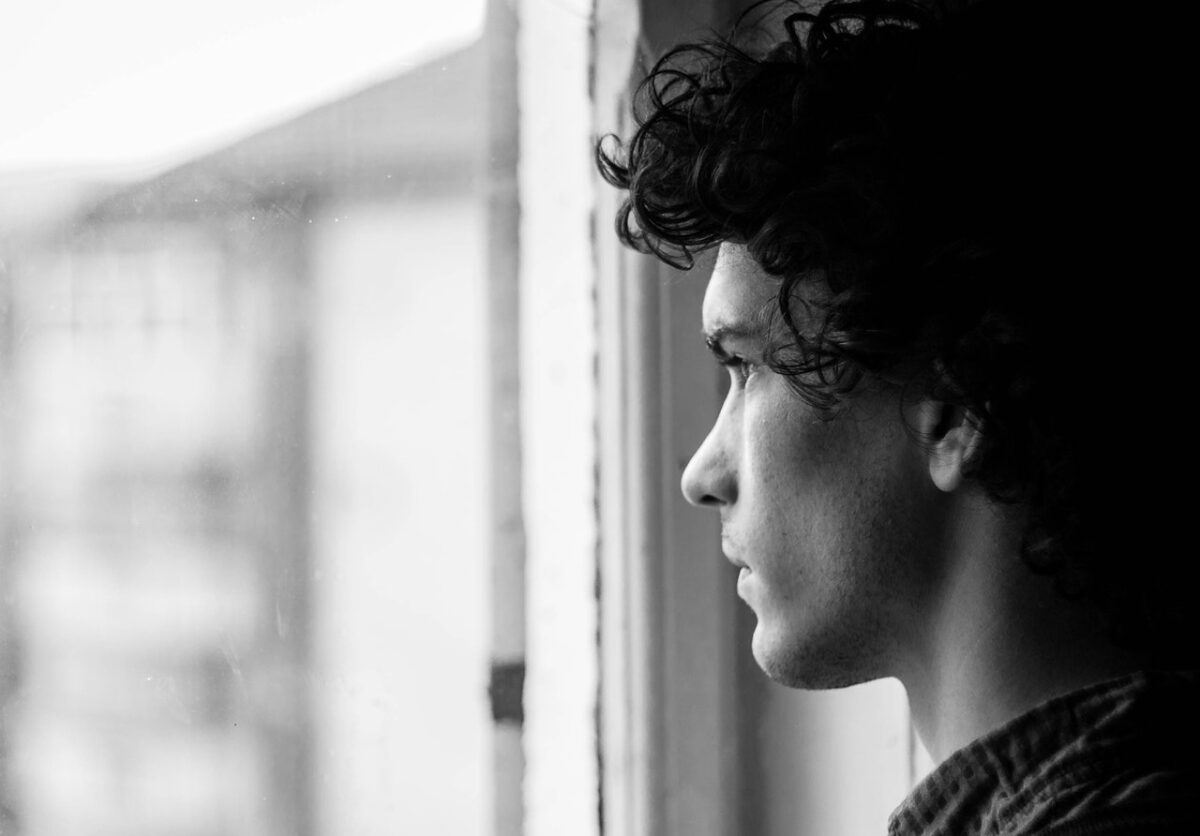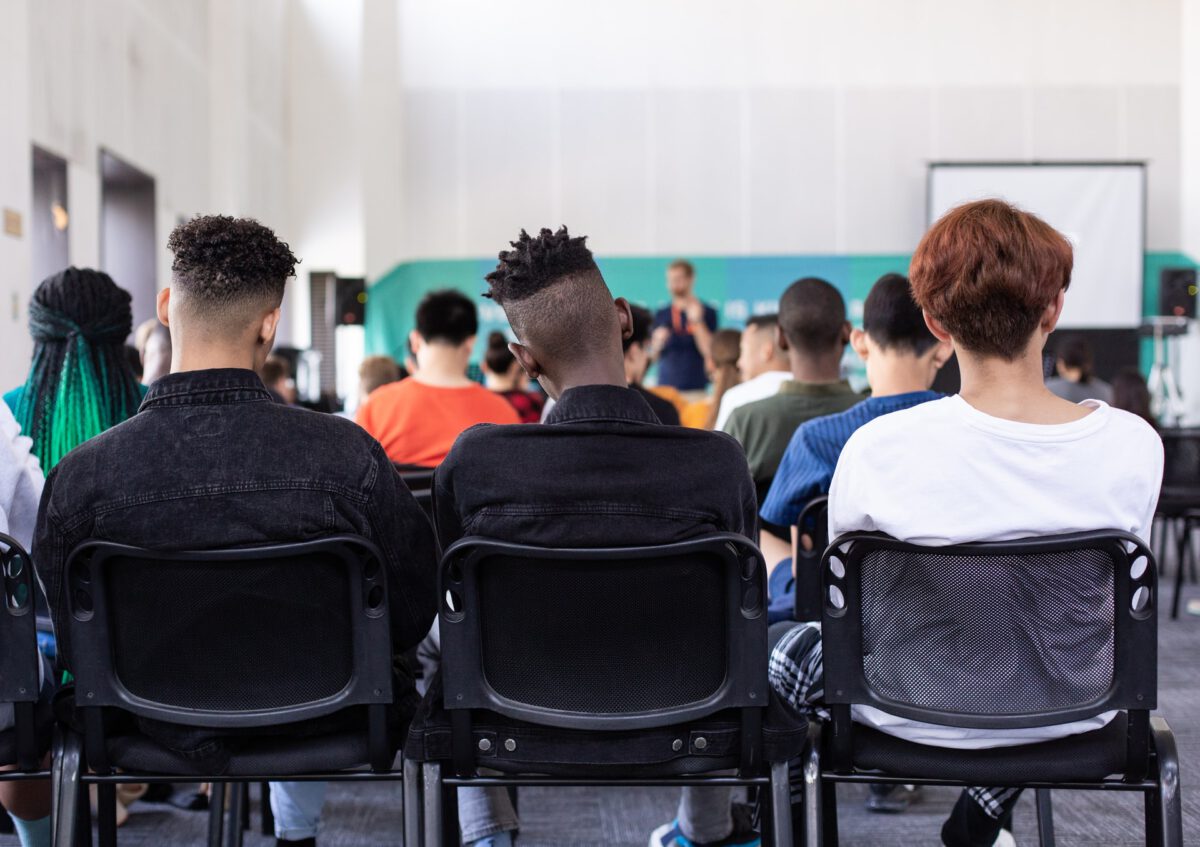In the Netherlands, about a quarter of young people under the age of 24 grow up in a family caring for a family member with a long-term illness, disability, psychological or addiction problem. How do we support these young informal carers?
For a number of years now, there has been growing attention for informal carers. In some countries, their stories are regularly published in the media, and policy measures are taken to support them (including financially).
The image of the informal caregiver that is put forward is that of the adult taking care of an elderly parent or partner. However, the ones that hardly come into the picture are the children and young people who live in a family where a parent or a sibling needs extensive care.
Little is known about how many of these young carers are in the Netherlands. Even less is known about their perspectives, the care activities they take up, or the impact of their situation on their social life or their studies.
We can all empathise with the fact that young children are denied the chance of enjoying their childhoods but the fact remains that many young people are often laden with the burden of being informal carers. And although in many cases they aren’t the primary caregiver, they make an important contribution to the care of a sick family member.
International support
In some western countries, notably the UK, Australia, New Zealand, and Germany, the living conditions of young carers, their wants and needs, their strengths and difficulties have already been investigated.
Therefore, certain (governmental) bodies have been set up to support them, and there is even legislation that gives them the right to, among other things, financial support.
Recognition of young informal carers in the Netherlands
While the approach in the Netherlands may not be in such stark contrast with the fact that they get support in western countries, the truth is that there aren’t real conversations in our communities about informal carers. They receive little attention in the press, politicians, and policymakers often never talk about them during election debates and campaigns, their voices aren’t being amplified, and little is known about their experiences, wants, and needs.
It’s basically like they aren’t a part of society and don’t deserve to be considered. As if their stories don’t deserve our attention.
But before we talk about the fact that there is little attention for young informal carers in the Netherlands, let’s first explain what the term “informal carer” means.
What is an informal carer?
It’s first important to consider the definition of this concept and to what extent the situations of a young informal carer would differ from case to case. All young people take on a number of caregiving tasks within the family to a greater or lesser extent.
It’s normal for family members to care for each other. Children are an integral part of a caring family dynamic, often not only being the recipients of care.
Providing care is therefore not exceptional in itself. Why then should we call certain care “informal care” and those who provide this care “young informal carers”? To what extent are they “exceptional”?
Tasks usually undertaken by adults
The situation of young carers differs from that of the “normal” experiences of children in the Netherlands because they’re largely confronted with the extraordinary care needs of a family member, with these young people taking on tasks normally meant for adults.
For example, while it’s perfectly normal for a 14-year-old to do chores at home and help mum and dad with one or two things, it’s not “normal” for them to be caring full-time for a bedridden mum or dad and doing such things as washing them, cleaning their faeces, or preparing their food every single day.
When any teenager finds themselves doing these more demanding tasks, then they can be classed as a “young informal carer.” However, there is much more to being an informal carer than completing these strenuous tasks.
The situations, experiences, and perceptions of young informal carers differ greatly. There are major differences between the degree of responsibility a young caregiver takes on: whether it’s the number of care hours; the nature of the care tasks; the relationship with the person they are caring for; the nature of the illness or disability; how many other family members there are to help; their financial situation; or the extent of external help. This help can come from caregiving professionals family members, friends, and neighbours.
The experience and perception of the young caregiver are also influenced by their gender, personality, place in the family, and school situation.
Young informal carers in the Netherlands
Finding out exactly how many children in the Netherlands are informal carers can be a daunting task. It’s very difficult to research young caregivers in any country due to the sensitivity of the topic and the invisibility of the group.
Young carers, for example, tend to keep their situation secret. As a result, their experiences often remain within the walls of their homes and thus invisible to anyone outside their families.
Culture also has a part to play in how difficult it is to find facts and figures on young caregivers. For example, in African and Asian cultures children are raised to respect and care for their families.
In a situation where an African or Asian child in the Netherlands is an informal caregiver, they might not think much of it because they see it as their duty to their family. They are also unlikely to talk about it with anyone outside of their family circle.
Among other reasons, some kids often keep it secret is to avoid stigmatisation, the fear that their families will be separated, out of fear of being bullied at school, or because they view it as a purely private matter. In addition, many young people find it hard to identify with the term “young informal carer” even though they take on many caring responsibilities. They often think that there is nothing “abnormal” about the care they provide and that it’s just part of family life.
Many young carers go undetected by Dutch officials
However, the invisibility of young carers is not only a result of how young people deal with this themselves. Young informal carers also appear to be undetected by policy and care provision services in the Netherlands.
Providing care is not immediately associated with children and young people. Policymakers and care delivery services are usually concerned with the primary caregiver (most of the time being another adult), and the care provided by young people is easily seen as just “helping at home.”Being a caregiver takes a lot of time and effort. While some children become very good at hiding it, sometimes teachers can spot any differences in the caregiver’s behaviour. The problem is that even when the signs are there, most schools do nothing.
When teachers discuss their concerns with carers, they often forget that while they may just be teenagers, most of them feel duty-bound to their role. Some of them even enjoy their role as caregiver. Being a young career often ranges from tasks such as administering medicines, doing groceries, and even doing taxes.
However much they want to care for their loved one, this is a heavy burden on a young person. It often causes them to either act out, eventually burning out, or becoming depressed. Most children find it difficult to ask for help, and even when they want to, they don’t know where to start looking for it.
Hindering important development
While not all children in the family may perform (care) tasks (mostly because the oldest kids take on more care responsibilities), the situation can hinder their development. They may not dare to bring friends home and may also have trouble concentrating on their schoolwork and extracurricular activities.
The development of a child requires that they just be kids, play, and have fun. Unfortunately, a young informal carer’s development is hindered by the fact that they never get to have a childhood.
The implications of coronavirus on young informal carers
Moreover, the lockdown has significantly strengthened the isolation of informal carers. The pandemic makes the possibility of getting assistance from care professionals much more difficult.
Due to overcrowded ICUs, and the need for healthcare professionals to focus on coronavirus patients, more young people have become informal carers. A situation has been created where many children who weren’t going to school due to the lockdown spend more time as informal caregivers than as students.
What help is there for young informal carers in the Netherlands?
While they may not be talked about enough, the good thing about the Netherlands is that there is some help for young informal carers. One website with a lot of helpful information is the Dutch Mantelzorg website.
Taking care of a family member, in combination with their education, friends, and hobbies is tough, especially in a pandemic. Below are a few things to do if you’re a young informal carer:
- Talk about your situation with someone you trust. You may find that with sharing comes a little bit of relief.
- Talk to your teachers, study coaches, counsellors, or (work) managers about your home situation. By letting them know you have someone at home who relies on you helps to build a network of understanding people around you.
- Take a break when possible, let other members of the family handle some of the caregiving for a while. It’s not selfish of you to take a break for a while. The break might even be what you need to keep going.
- If you would like to talk to someone Neighborhood Mantelzorg is the perfect place to find telephone numbers of organisations for informal care support in your area. Feel free to call or send an e-mail to these organisations. They are there to help you.
- You can contact the Mantelzorglijn for information, advice or just to tell your story: 030 – 760 60 55. Also, send an email to ma************@********rg.nl.
- You can also share your experiences with other young informal carers via their Facebook page.
- If you have questions, please don’t hesitate to reach out. There is always someone to talk to. You are not alone.
Some helpful websites for young informal carers in the Netherlands
- Kankerspoken.nl — for and about children who have a parent with cancer.
- Inloophuisscarabee.nl — a walk-in centre in Leiden where people can meet each other who come into contact with cancer.
- Helpmijndierbareisverslaafd.nl — for young adults who have a parent with an addiction.
- Kopstoring.nl — for young people with a parent with psychological or addiction problems.
- Vitalismaatjes.nl — a volunteer organisation that matches children between the ages of 5 and 18 with an adult volunteer.
- TV series Bikkels — TV series by the VPRO about young informal carers.
- Ikzorgvoor.com — a platform for young carers for the municipalities of Leiden, Leiderdorp, Zoeterwoude and Oegstgeest.
What can be done to improve the lives of young informal carers in the Netherlands?
The truth is that drawing up policy recommendations for such a diverse group of children and young people in such different contexts is not easy. There aren’t any black and white answers that are appropriate for all young carers.
Start the conversation
However, central to every policy is by starting with listening to and talking to those affected. We first need to recognise that many children and young people are also informal carers and the burdens they take on.
There should also be an understanding that some young informal carers may refuse to accept help and support. This requires patience and extremely open and honest conversations. It’s important to first build trust and understanding before help and support can be offered. After all, their trust in others can be extremely fragile.
Recognising them
One of the most important ways of helping young informal carers is recognising that they exist, acknowledging them, listening to them, and amplifying their voices.
Children and young people are an important part of our society, they shape it and contribute to it. Young informal carers provide a key example of this, but they’re of course not the only example. By recognizing the active contribution of children and young people to our society, young informal carers may also find the space to share their experiences.
Provide accessible information
Children and young people living in a family where a parent has a serious chronic illness or disability need more information about their circumstances. This information must be accessible, affordable, reliable, and understandable for young people. It’s not enough to just passively present information.
Active contact must be sought with these young people, for example by regularly including references in media aimed at them. Informal care organisations can also expand their target audience to young informal carers.
For example, children from single-parent families, immigrant families, or families in which a parent is struggling with a psychological or addiction problem are often underrepresented.
Provide a safe space to share their experiences
There should also be support for “young carers” in sharing their experiences. Children and young people find it difficult to do this because there is often misunderstanding or little interest in their situation, or they think they are demanding too much attention and are asking to get “special treatment”.
They often have little influence on how others will respond and what the consequences will be on their personal lives. Because of this lack of safe spaces, they keep their stories to themselves.
Change education on young informal cares
There also has to be a flexible attitude from the school management and the teachers in regards to the needs and schoolwork of young informal carers. Education is important for all children and if their studies are put under pressure by the additional stress in the family, the school should be flexible to their individual needs.
For each situation, schools can examine what they may need and how they can offer support to them. During classes, extra attention should also be paid to them. The reality is that not every child in a classroom comes from a happy and healthy home and schools need to take that into account.
Inform chronically ill family members
Parents with a serious chronic illness or disability should receive information about parenting in these circumstances, and about the experiences of young informal carers. It’s important that both parents and children know and understand each other’s perspectives. This can make way for open and honest conversations.
It’s also important not to adopt an accusatory or judgemental tone when addressing the parents of young caregivers. As the young people themselves, stress: being and working together takes precedence over everything.
Assistance for parents and family in the Netherlands
There needs to be adequate assistance for parents of young informal carers. Professional care should not only be aimed at the family members with an illness or disability but at the whole family, including the underaged children.
Professional care providers should be open to questions from children in these families. Care providers should also: inquire about young people’s perception of the family situation; support them where necessary; and involve them in care planning (for example, when a care consultation is being planned between professional care providers and adult informal carers).
Try not to judge
No family is an island. What young informal carers go through in their families affects their lives and communities at large. The way the outside world reacts to the (sick) family members is not always positive. People have prejudices, often stare, and see these families as different which can lead to bullying.
That’s why young carers only share their experiences with a very limited number of people or, often, no one at all. There is so much that we as a community, our politicians and policymakers, can do to help young informal carers.
More needs to be done for young informal carers in the Netherlands
There are so many children in our communities who are informal caregivers, many of whom have no one to turn to. More needs to be done to help them. We need to listen to their stories and so we can better understand their experiences.
This is the only way we can begin to help them. We might not be able to stop children from becoming informal carers but we might be able to make life easier for them. The hope is we can build a more helpful and understanding community that seeks to compensate them (a little) for the childhood that was taken from them.
Are you a young informal carer or do you know anyone who is around you? Let us know your thoughts and experiences in the comments below!
Feature Image: Andrew Neel/Pexels







